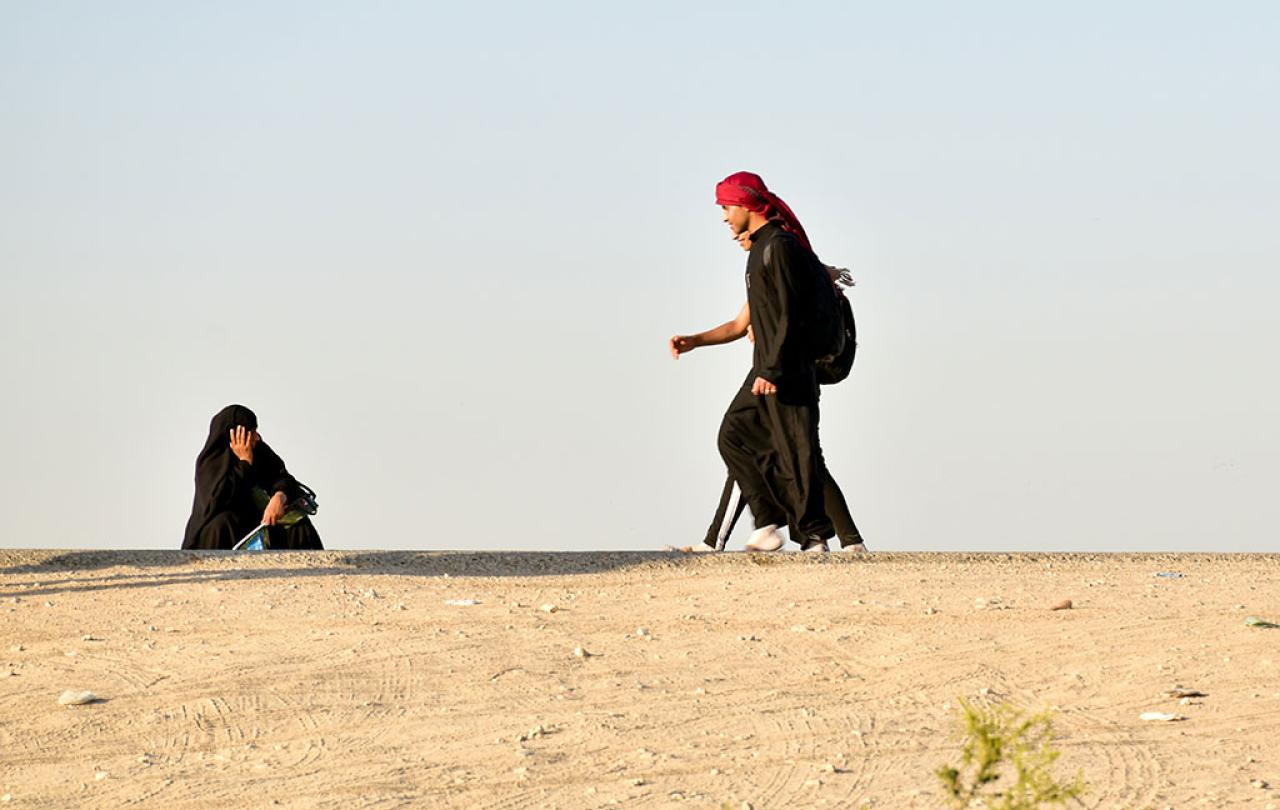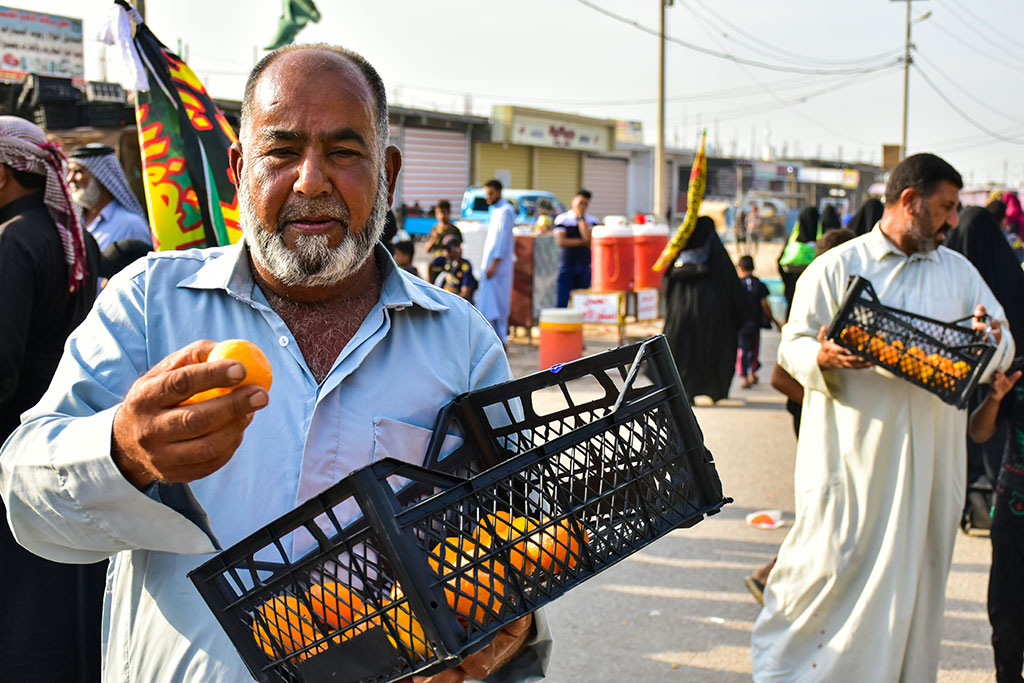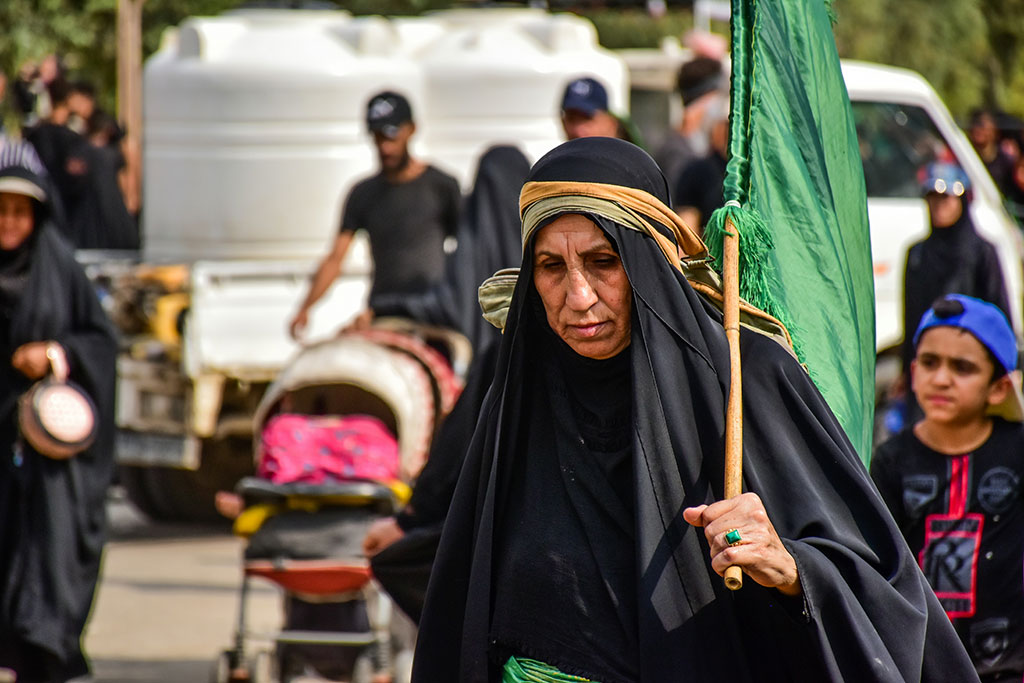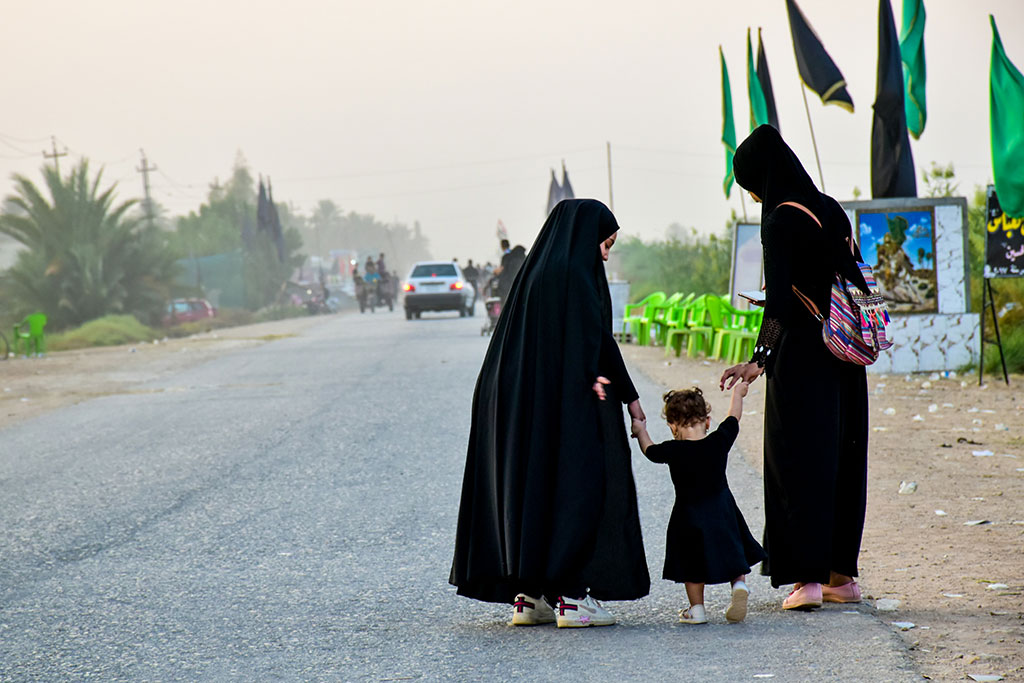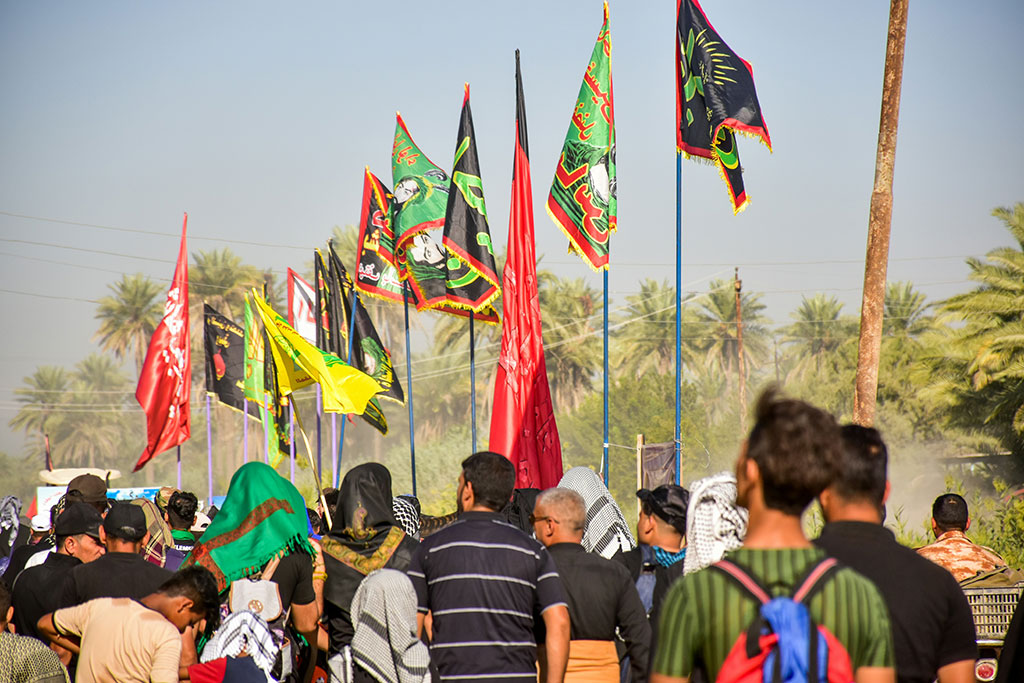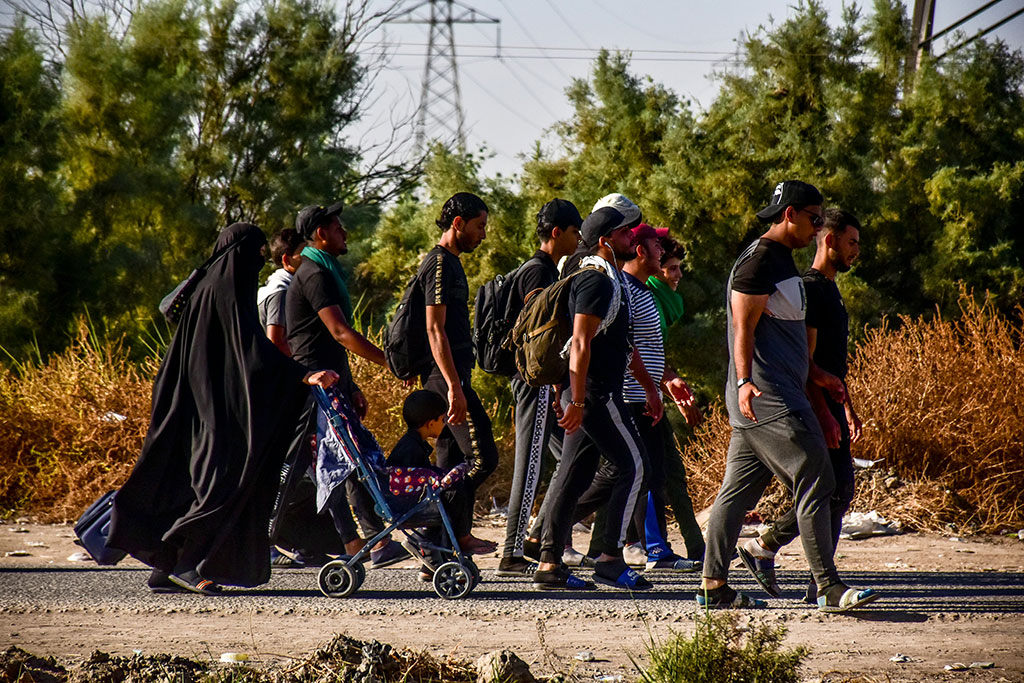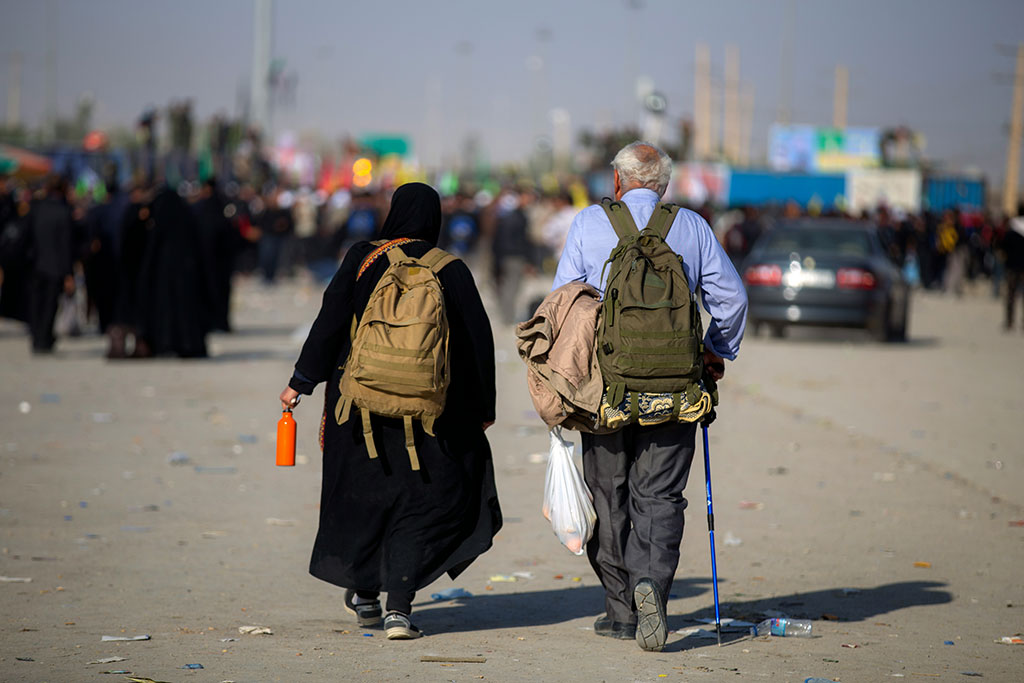
What do the events of Holy Week and Easter---these seminal events in Christianity-- have to say in a time of slaughter and now starvation in the Middle East? The closer we get to Easter Sunday, the most sacred day in Christianity, the more I’ve wrestled with that question.
I’m neither Palestinian nor Israeli, and so my connection to the historic tragedy continuing to unfold is not as visceral or as obvious as some. But as an American and a Christian, I’m deeply bound up in all of this. The realization of my own implication led me back in 2009 to co-found a nonprofit whose mission is to help Americans better understand the modern Israeli-Palestinian conflict, the American role in it, and to learn about the difficult work of honest peacemaking. These past five months are a nightmare I can’t wake up from, and of course they’re more than a nightmare for the people in the south of Israel and the West Bank, and they’re an absolute hell on earth for the people in Gaza today.
For more than 20 years I’ve lived in a set of deep relationships with both Palestinians and Israelis. The horror and barbarity of the Hamas attacks on October 7th and the horror and devastation of the slaughter and starvation taking place unabated in Gaza even this Holy Week have left me begging God to intervene and begging our leaders to do whatever we can to stop the madness.
Sometimes there’s a lot more of the darkness of Thursday and Friday than the joy and light of Easter Sunday morning.
In most of the 65 trips I’ve led to the Holy Land over the years, after we’ve had our heart broken by the stories we’ve heard and the experiences we’ve shared with people on all sides, we visit the place on the Mount of Olives looking at the Old City of Jerusalem where Jesus stopped, looked at the city, and wept. It is here, just as he entered what we call his Passion Week, that he said “Jerusalem, Jerusalem if only you’d known the things that make for peace.” If only you’d known. If only we’d known. If only we knew.
I need this story to be in the Bible. Many times I’ve had to fall back on Jesus weeping for the mess we’ve made of our lives, the way we allow our fears and our hatreds or our indifference to guide how we treat our neighbors, how often we use violence and power to deny the way they too bear the image of God.
This is one of those times. The worst of those times in all the years I’ve been involved in Israel and Palestine. I’ve found myself weeping privately, in conversations, and sometimes in public places. And I’ve spent so much time asking God to intervene. To comfort the terrorized and afraid, to feed the starving, to silence the guns of war, to rescue and deliver those who are dying.
And the answer I keep getting has felt like silence. Deafening silence.
At times like this, the Christian life feels like a Thursday night in a garden when your friends can't’ stay awake to help you and even God is not answering your prayer. Or it feels like a Friday afternoon in Jerusalem when all hope has died and you can’t imagine how the world will ever be better. Sometimes there’s a lot more of the darkness of Thursday and Friday than the joy and light of Easter Sunday morning.
The work of justice and mercy make for peace. Revenge and violence do not.
But Lent and Holy Week have given me another answer, beyond God’s silence--the reminder that the people in Israel and In Gaza, even those this very night who are displaced and starving, are not alone. God is with them. And he weeps for them. And he weeps for us. If only we knew the things that make for peace. If only we knew how to love God and to love our neighbor and to love our enemies. If only we knew the limits of violence to achieve good ends. If only we knew the connection between peace and justice.
And the fullness of this Holy Week also brings me to this reminder that if God does not seem active maybe it’s because we are not listening to his call. My friend Bill Haley says this:
“The actual invitation of the Christian faith is not just to believe in Jesus or be like Jesus or tell others about Jesus (as right as these thing are), but actually to be the presence of Jesus in the world, our hands his hands, our feet his feet, our heart his heart, our bodies his very body... By this does the reality of the risen, living Jesus continue to be displayed, visibly and tangibly, in and around the world (and yours and mine), day after day.”
To do this we first seek to know the things that make for peace (and equally important is to know the things that don’t make for peace). The work of justice and mercy make for peace. Revenge and violence do not. The embrace of our mutuality and interconnectedness make for peace. Tribalism and dehumanization of our neighbors do not. Justice and respect make for peace. Systems of domination and ideologies of hatred do not. Respect for the sacredness of life and the inherent dignity of all as made in the image of God make for peace. Brutality, murder, and starvation do not. Acts of love and service make for peace. Fear and self-centeredness do not.
The Friday world is zero sum. Justice and peace are separate things. Some lives are more important than others.
In a Good Friday world, to live as if these “things that make for peace” are actually true is a costly endeavor. Jesus paid with his life. Others like Martin Luther King have also. For most of us, it may just be the way our reputation suffers, or how certain relationships are strained. There may be some economic cost or sacrifice of our time and attention required. But if it says anything, Holy Week teaches us that incarnational living is costly. Reconciliation comes at a price. The crucifixion wasn’t just something that happened to Jesus on the way to resurrection. It is central to it.
And yet, believers in Jesus know that Holy Week and the shame, humiliation, brutality and injustice of the crucifixion were not the last word. To borrow from the legendary Black preacher S.M. Lockridge, we live in a Friday world, but we know that Sunday’s coming.
In a world of Fridays, violence begets violence. The Friday world is zero sum. Justice and peace are separate things. Some lives are more important than others. There is minimal cost to looking away from people who are hungry and imprisoned. Religion is used to baptize injustice. We live in a Friday world. But we are Sunday people. And we are called to live as best we can as reminders that in a Sunday world we are responsible for what we know, responsible to each other, and responsible before God. To quote Dr. King again, in a Sunday world, "darkness cannot drive out darkness; only light can do that. Hate cannot drive out hate; only love can do that."
Sunday people are Easter people. And Easter people have a mandate to live as peacemakers in a world riven by conflict. To be purveyors of light and hope in a time of devastation and despair. Frederick Douglass said “I prayed for freedom for 20 years, but received no answer until I prayed with my legs.” As we pray for peace, and we have to be people who pray for peace, let us also be agents of God’s peace. Let us be those incarnational Easter people who pray for peace with our legs. Let us do the urgent work for a lasting ceasefire, for a release of all hostages, and for food for hungry people. And when the guns are silenced and the hungry are at last being fed and the wounded and traumatized are given space to heal, then the greater work begins. Let us learn the lessons of how we got here and let us commit ourselves to a different path forward, one grounded in the sacred dignity of all the people of the land, Palestinians and Israelis alike. Let us support all those who seek justice and peace and security through the path of mutual flourishing. These are the things that make for peace.





